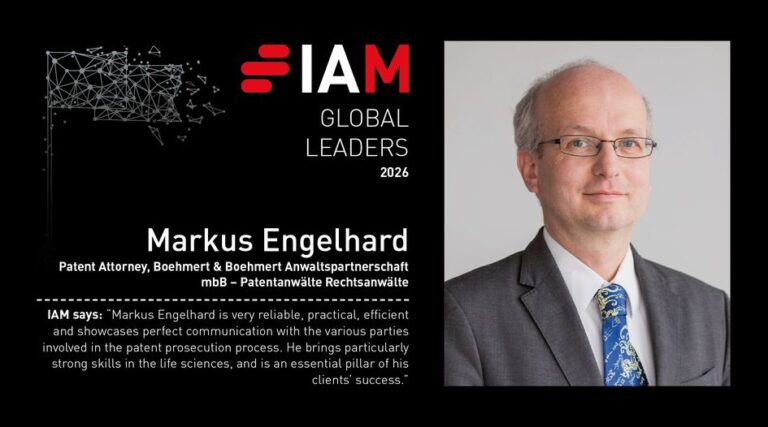Having lectured for WIPO and trained patent agents from numerous developing countries, what, in your opinion, is the most crucial piece of advice you offer regarding intellectual property strategy?
Maintain a sharp eye for detail but never lose sight of the broader purpose behind your work. Every word you write – or choose not to write – can carry weight. Approach each document with care, knowing that meaning can shift depending on the reader’s perspective.
Avoid assumptions. Instead, communicate with precision and clarity to ensure your message is understood as intended.
Your work often focuses on Asia, and you have held academic positions in India and Taiwan. How do you perceive the evolving landscape of patent law and enforcement in the Asian region compared to Europe?
The patent landscape in Asia is and has been characterised by dynamic growth, with countries like China leading in patent filings and various nations like India, Thailand, Vietnam, Indonesia, the Philippines, as well as China, developing specialised IP courts. China’s patent laws have been evolving rapidly, with specific guidelines aimed at promoting biotech innovation. India, on the other hand, provides a more restrictive environment for biotech patents. The Indian Patent Office implements a stringent examination process, with particular attention to Section 3(d) of the Indian Patent Act, which restricts patenting of new forms of known substances to rather specific conditions. This has implications for biotech companies, often leading to strategic considerations for patent application filings. The European Patent Convention presents a more established and, to some extent, harmonised system, especially in view of the recent establishment of the Unified Patent Court. Asia’s approach is more fragmented, with significant regional divergence in enforcement capabilities and legal frameworks.
What common misconceptions do clients, particularly those new to the field, often have about IP rights, and how do you address these?
One of the most frequent misconceptions among newcomers in the IP field is the confusion between patentability and freedom-to-operate. While a granted patent is an important asset in an applicant’s IP portfolio, it does not automatically grant the right to use or commercialise the invention. A patent provides the right to exclude others from making, using, or selling the invention – it does not guarantee that the patent holder is free to do so themselves. This is because third-party rights may still exist. For example, the patented invention might rely on or incorporate technology that is itself protected by another party’s patent. In such cases, the patent holder may be prevented from practicing their own invention without obtaining a license of resolving those overlapping rights. Therefore, patentability and freedom to operate are distinct but equally critical concepts. Both must be considered carefully when developing a robust IP strategy. Raising awareness of this distinction within a client’s organisation is already a major step forward. It enables informed decision-making and helps ensure that efforts to secure patents are complemented by steps to assess and secure freedom to operate.
Beyond legal and technical knowledge, what personal qualities or skills do you believe are most important for a successful patent attorney in today’s globalised environment?
To be successful as a patent attorney working in a globalised environment, in my view, it is important to be and stay curious, to be flexible, ready and willing to adapt to new developments, to develop and maintain a capability of perceiving chances as they present themselves in a rapidly changing environment and to be prepared and willing to go with clients “all the way”.
Looking back at your career since joining BOEHMERT & BOEHMERT in 1998, what has been the most rewarding aspect of your work in intellectual property?
If I were to highlight a single, “most rewarding” aspect of my IP work, it would be the privilege of staying connected to the cutting edge of science. After all, for an invention to be patentable, it must be both novel and inventive. At the same time, my role allows me to engage with people from an incredibly diverse range of backgrounds, and this unique blend of rigours scientific analysis and rich human interaction makes the work so fulfilling. Balancing the hard facts with the human factor has been, and continues to be, one of the greatest privileges of my career as a patent attorney.
Markus Engelhard
Partner, Patent Attorney
[email protected]
Dr. Markus Engelhard is a partner in the pharma/life sciences group of Boehmert & Boehmert. He studied biology, chemistry, and biochemistry at the University of Cambridge, UK, the University of Frankfurt am Main, and the University of Witten-Herdecke. After graduation, he obtained his PhD from the University of Cambridge. Markus Engelhard is active in all fields of life sciences, pharmacology, and biotechnology, having a particular focus on therapeutic biomolecules and pharmaceutically active agents.
Images are for reference only.Images and contents gathered automatic from google or 3rd party sources.All rights on the images and contents are with their legal original owners.
